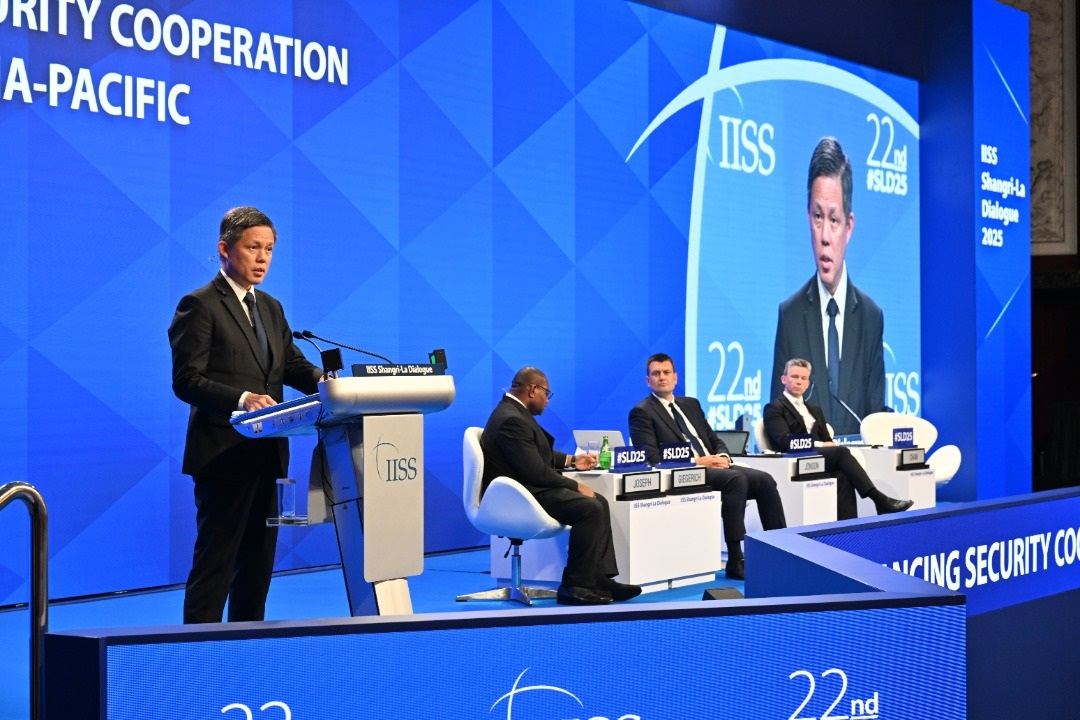DIPLOMACY
SLD remains valuable platform for crucial discussions: Dr Ng
12 Jun 2022
Minister for Defence Dr Ng Eng Hen spoke on the US-China relationship, the importance of a rules-based order and the role of ASEAN as a regional security platform at the 19th Shangri-La Dialogue (SLD).
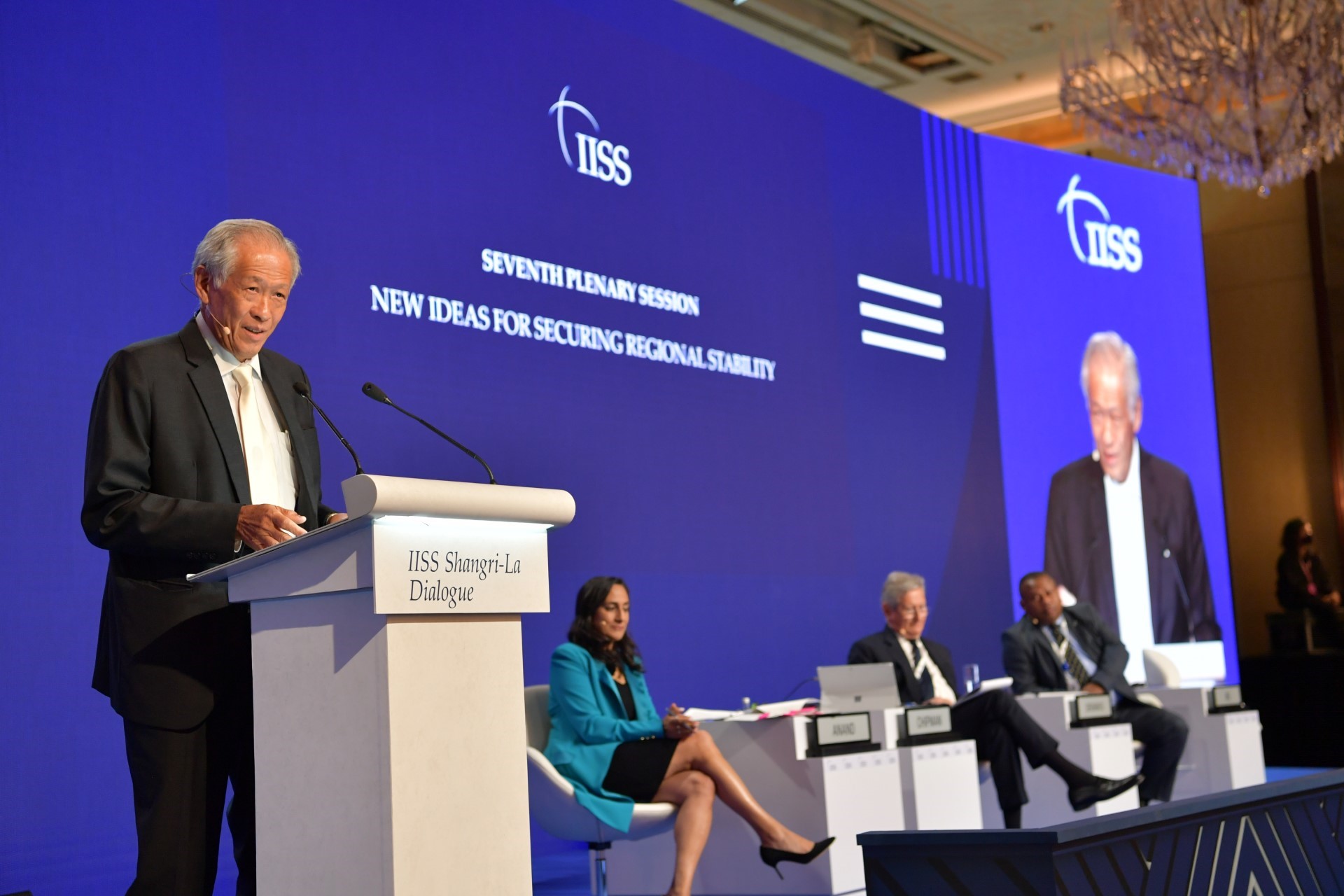
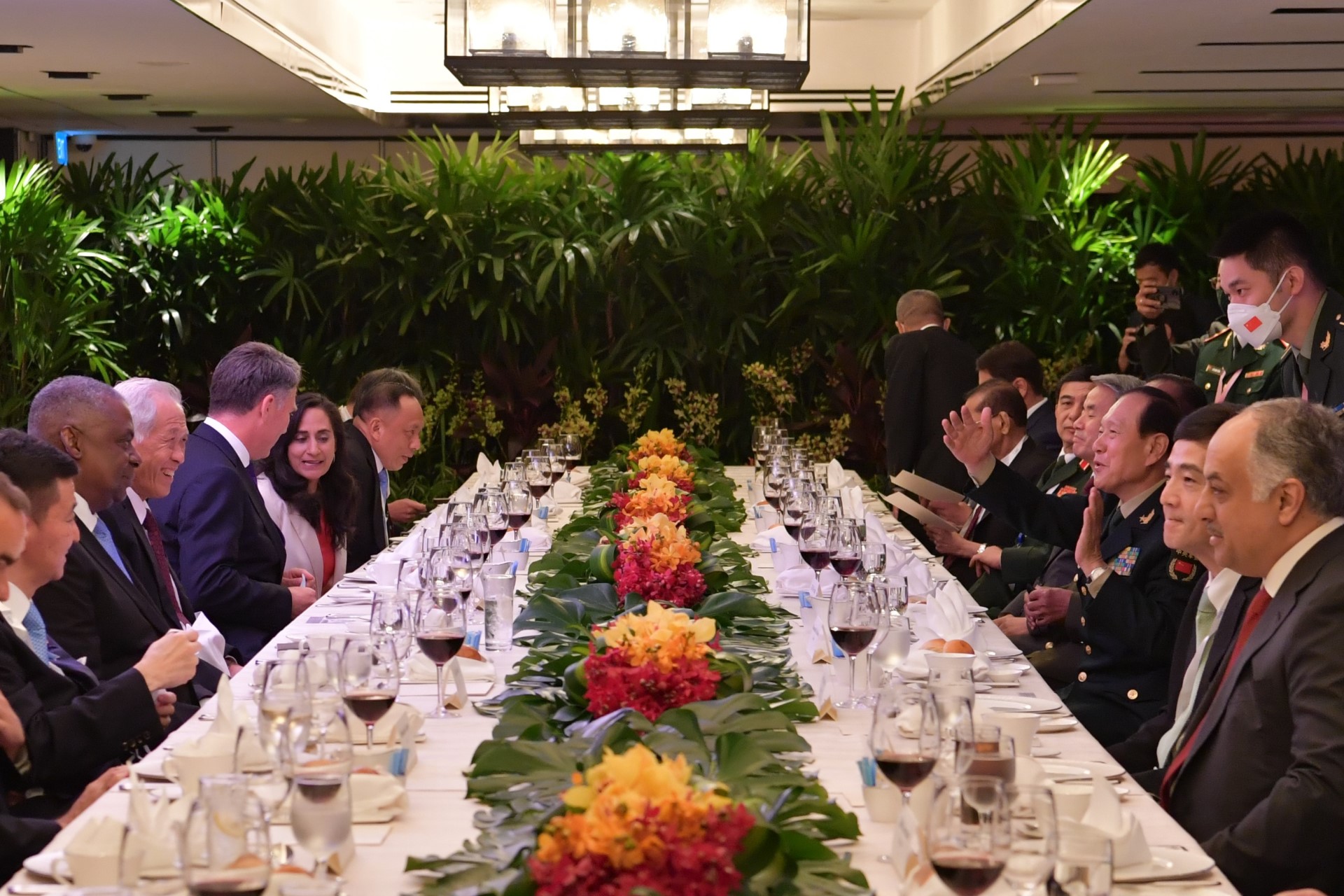
US-China strategic competition
It was therefore comforting to have both the US Secretary of Defense Lloyd J. Austin III and Chinese State Councilor and Minister of National Defense General (GEN) Wei Fenghe participating in the dialogue, said Dr Ng.
Mr Austin spoke at the first plenary session on 11 Jun while GEN Wei outlined China's vision for regional peace at the fifth plenary on 12 Jun.
During his speech, Mr Austin noted that the US remains committed to the principles of an open, inclusive, and rules-based regional architecture, and is "working closely with both our competitors and our friends to strengthen the guardrails against conflict".
"That includes fully open lines of communication with China's defence leaders to ensure that we can avoid any miscalculations.
"These are deeply, deeply important conversations," said Mr Austin.
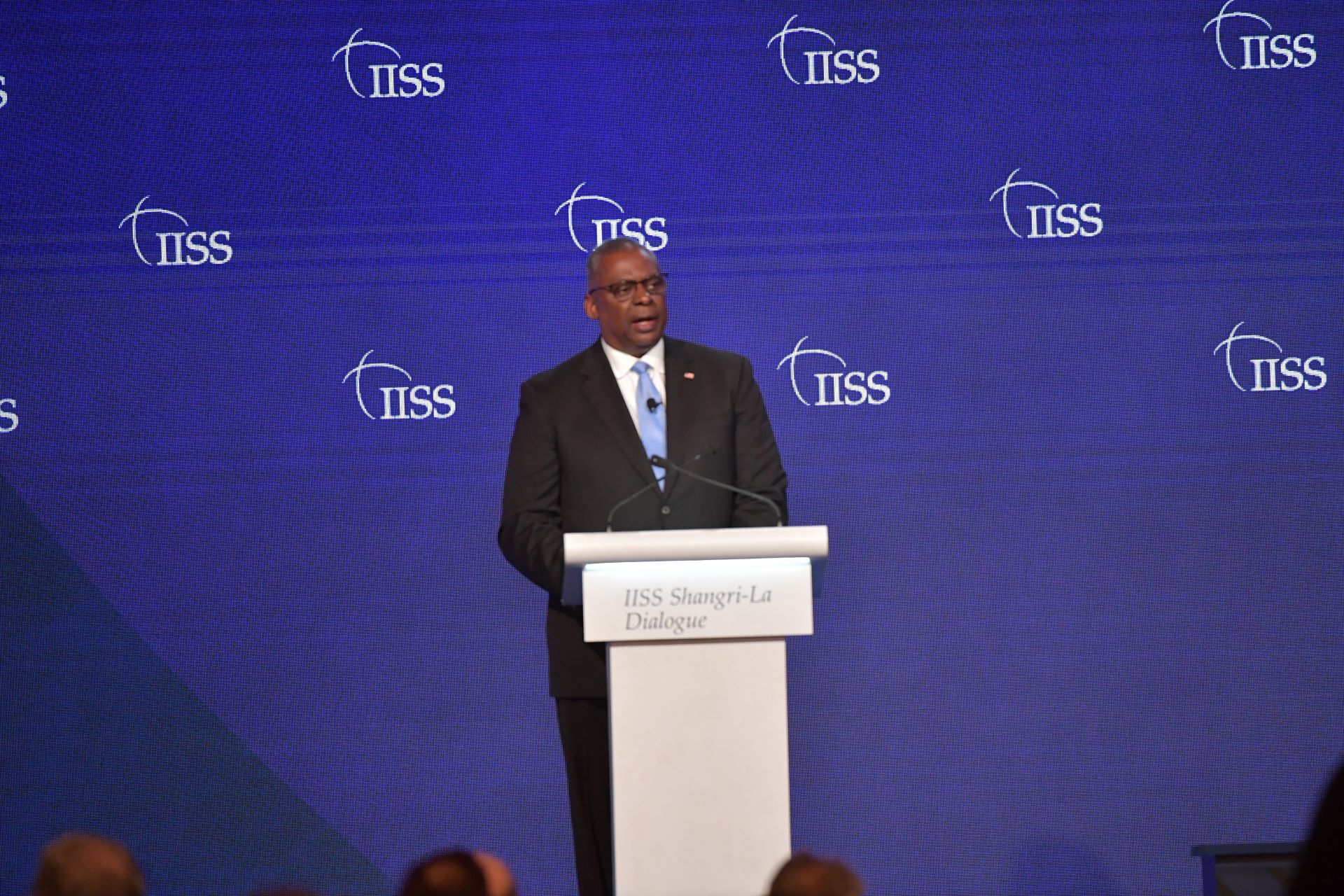
Importance of rules-based order
He added that big powers carry heavy responsibilities and should be models of transparency and communication. This was why the rules-based international order mattered just as much in the Indo-Pacific as it does in Europe.
Citing the Ukraine war, Mr Austin said: "Russia's invasion of Ukraine is what happens when oppressors trample the rules that protect us all. It's what happens when big powers decide that their imperial appetites matter more than the rights of their peaceful neighbours. And it's a preview of a possible world of chaos and turmoil that none of us would want to live in."
Mutual trust for prosperity
Noting that the US and China are at a critical junction of their relationship, the Chinese defence minister GEN Wei said that if the US can treat China with "mutual respect", there would be room for both nations to prosper.
In response to both Mr Austin and GEN Wei's speeches, Dr Ng noted that ASEAN nations took comfort in the fact that there was not a need to choose and take sides. He also hoped that this dialogue would be a good start for both the US and China to address their disagreements.
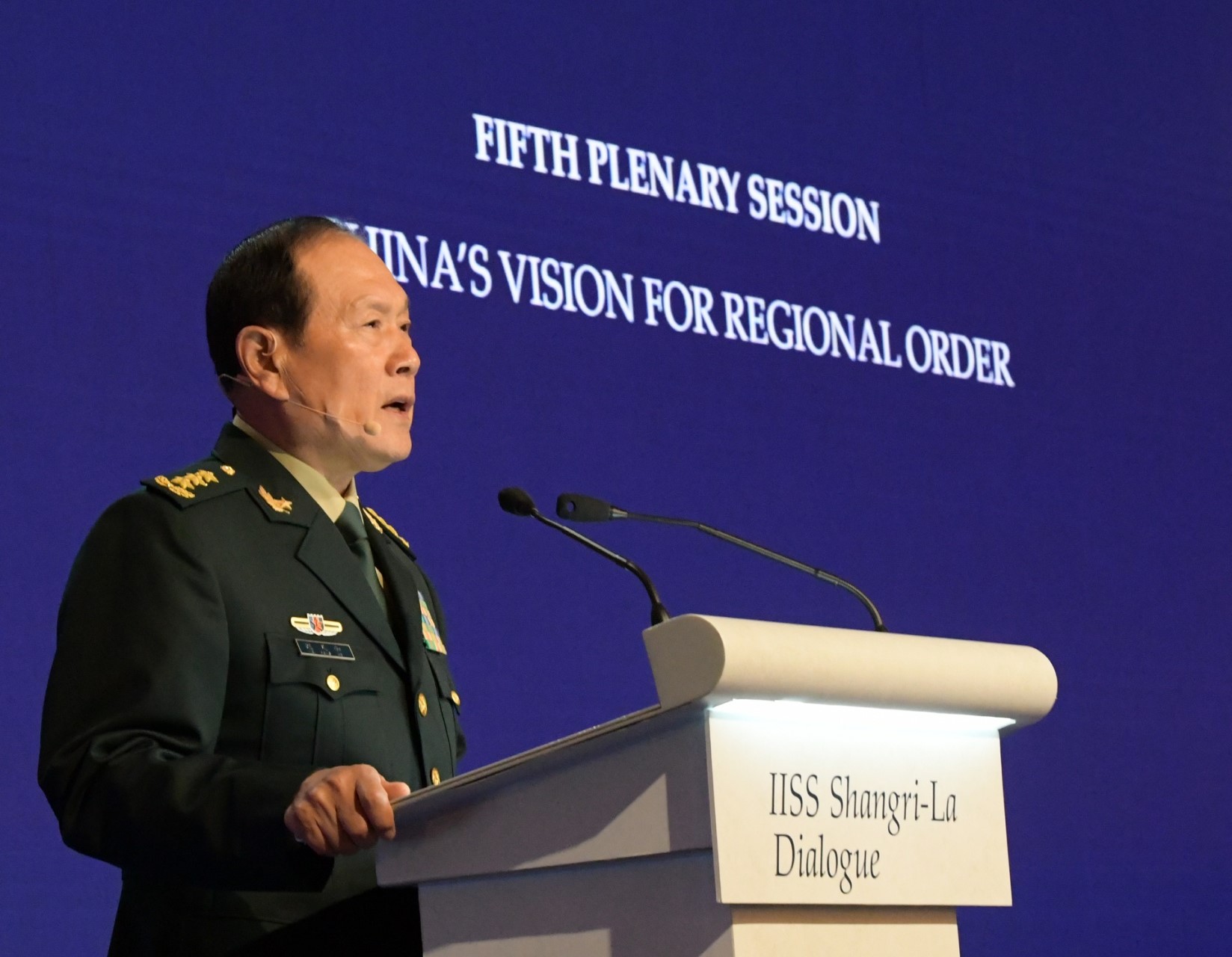
ASEAN as platform for regional security cooperation
Closer to home, there is a need to stop the contagion and avert a physical confrontation in Asia, especially in reaction to developments in Europe, said Dr Ng.
Raising this issue during his speech at the seventh plenary session on 12 Jun, Dr Ng noted that the core concern for Asia is about "an inter-dependency that is far more developed, productive, and mutually beneficial than Russia and Europe".
This is why Asia has to strengthen existing military establishments and step up engagements within and with other extra-regional powers, as well as build confidence and strategic trust in one another.
For instance, multilateral exercises such as those conducted under the ambit of the ASEAN Defence Ministers' Meeting (ADMM)-Plus can continue to set norms and establish mechanisms to de-escalate and avert conflict, said Dr Ng.
Building confidence
"We have confidence-building initiatives such as the Code for Unplanned Encounters at Sea, which all 18 ADMM-Plus navies have practiced, (as well as) the Guidelines for Air Military Encounters, with principles and operational guidelines for air encounters between military aircraft is the first of its kind."
Dr Ng also noted that it takes time for states to develop mutual trust. He said: "The invasion of Ukraine has re-emphasised for ASEAN ministers and ASEAN-Plus ministers how important it is to build trust in times of peace."
In response to other countries like France and Canada expressing their desire to join the ADMM-Plus, Dr Ng noted during his wrap-up interview that the ministers have agreed in principle and welcome "as many navies as possible".
"We did 10 plus eight (countries), but that was never the endpoint. It was a practical arrangement because we have slightly different security architectures," said Dr Ng.
"We think their presence adds to the stability (in the region)."
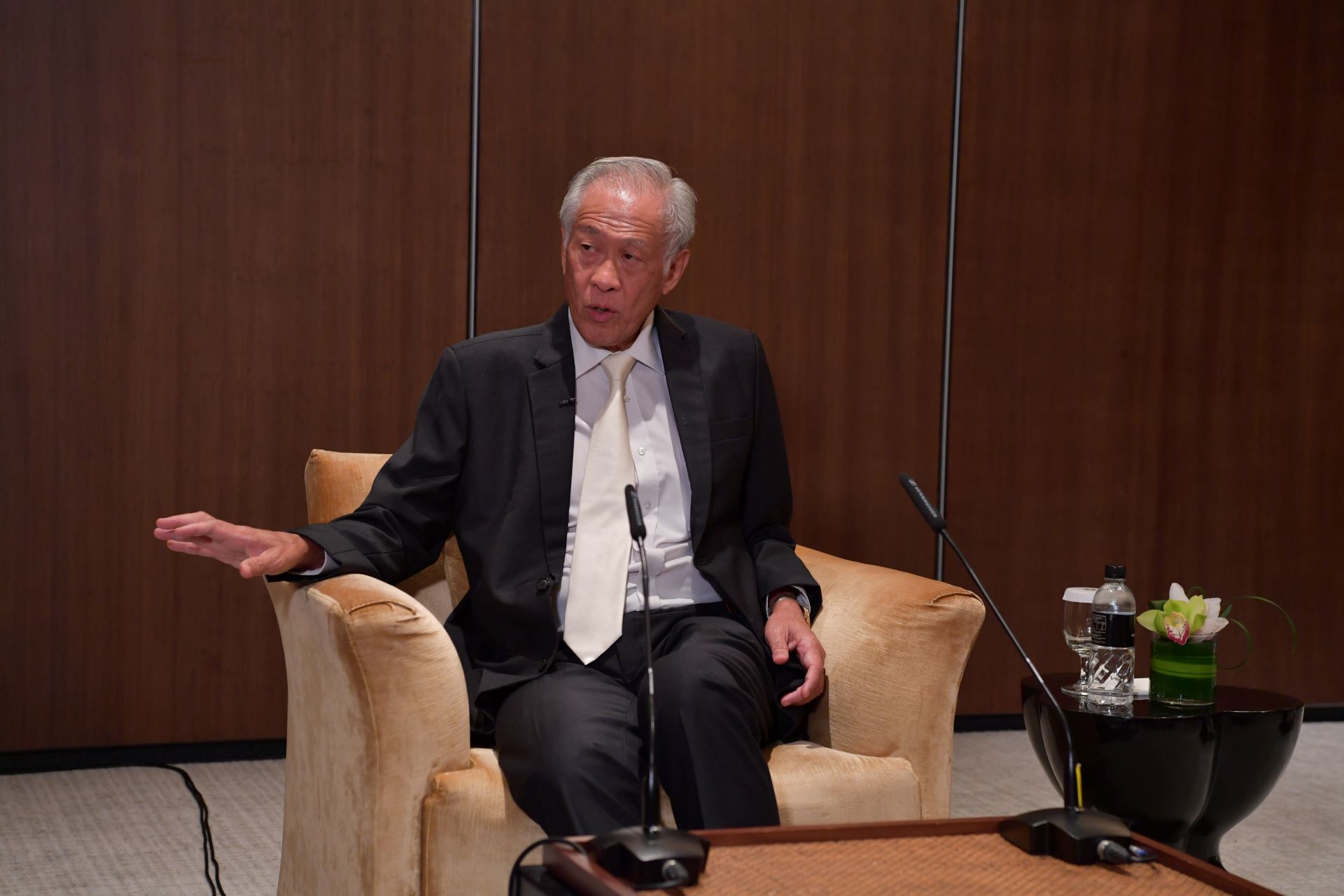
Strengthening defence partnerships
During his wrap-up interview, Dr Ng also outlined developments for the Ministry of Defence and the Singapore Armed Forces (SAF).
He said that the several Memorandums of Understanding (MOUs) signed with various nations showed that "people value partnerships with the SAF and strengthened our defence partnerships."
These included a MOU for Academic Cooperation between SAFTI Military Institute and the PLA Academy of Military Sciences, an enhanced MOU with the Republic of Korea, as well as an enhanced Memorandum on Defence Exchanges with Japan.
Although SLD took place amidst a multitude of security challenges, Dr Ng said that the ministers did not shy away from difficult issues.
From the instability of Ukraine and the possible impact on Europe to ways on improving issues in the South China Sea, there were plenty of candid discussions, said Dr Ng.
"I would say all-in-all, the ministers were very forthcoming. We all had one common aspiration but we were also very realistic in terms of how the world works, and I think that is positive," said Dr Ng.
"We hope that this Shangri-La Dialogue has contributed a bit towards each country's calculations on how to maintain peace."
Snippets from the sidelines of SLD 2022
9 Jun 5.15pm
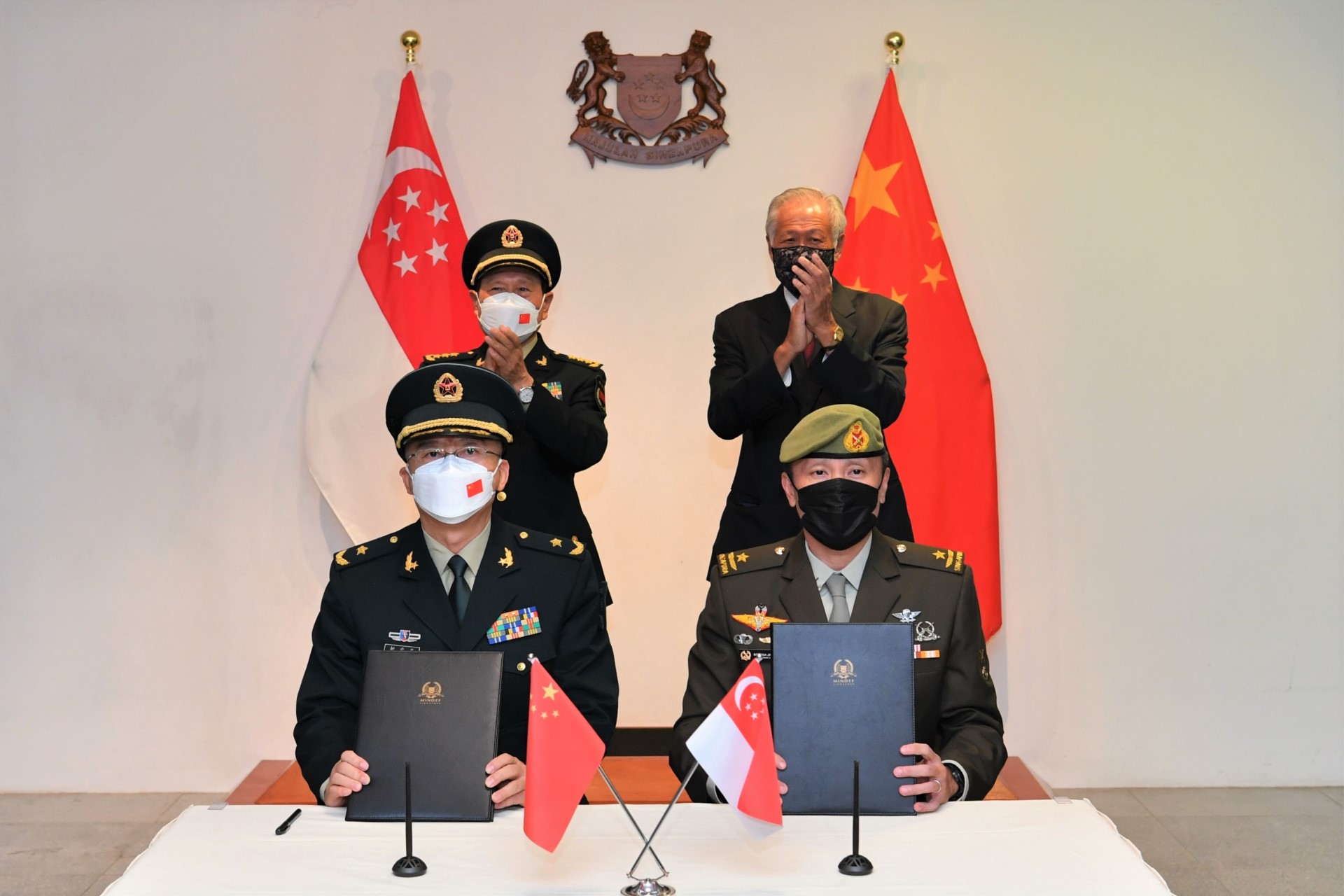
Dr Ng (standing, right) and GEN Wei (standing, left) witnessing the signing of the MOU for Academic Cooperation between SAFTI Military Institute (MI) and the PLA Academy of Military Sciences between Brigadier-General Chua Jin Kiat Commandant SAFTI MI (seated, right) and Major General Yao Dangnai Vice President Academy of Military Sciences (seated, left).
The agreement, which was signed on the sidelines of SLD, allows both institutions to enhance academic exchanges through study visits and dialogues.
During their meeting, Dr Ng and GEN Wei also reaffirmed their commitment to strengthen bilateral defence cooperation through the resumption and regular conduct of flagship bilateral exercises, which had been put on hold due to COVID-19.
10 Jun 9.20am
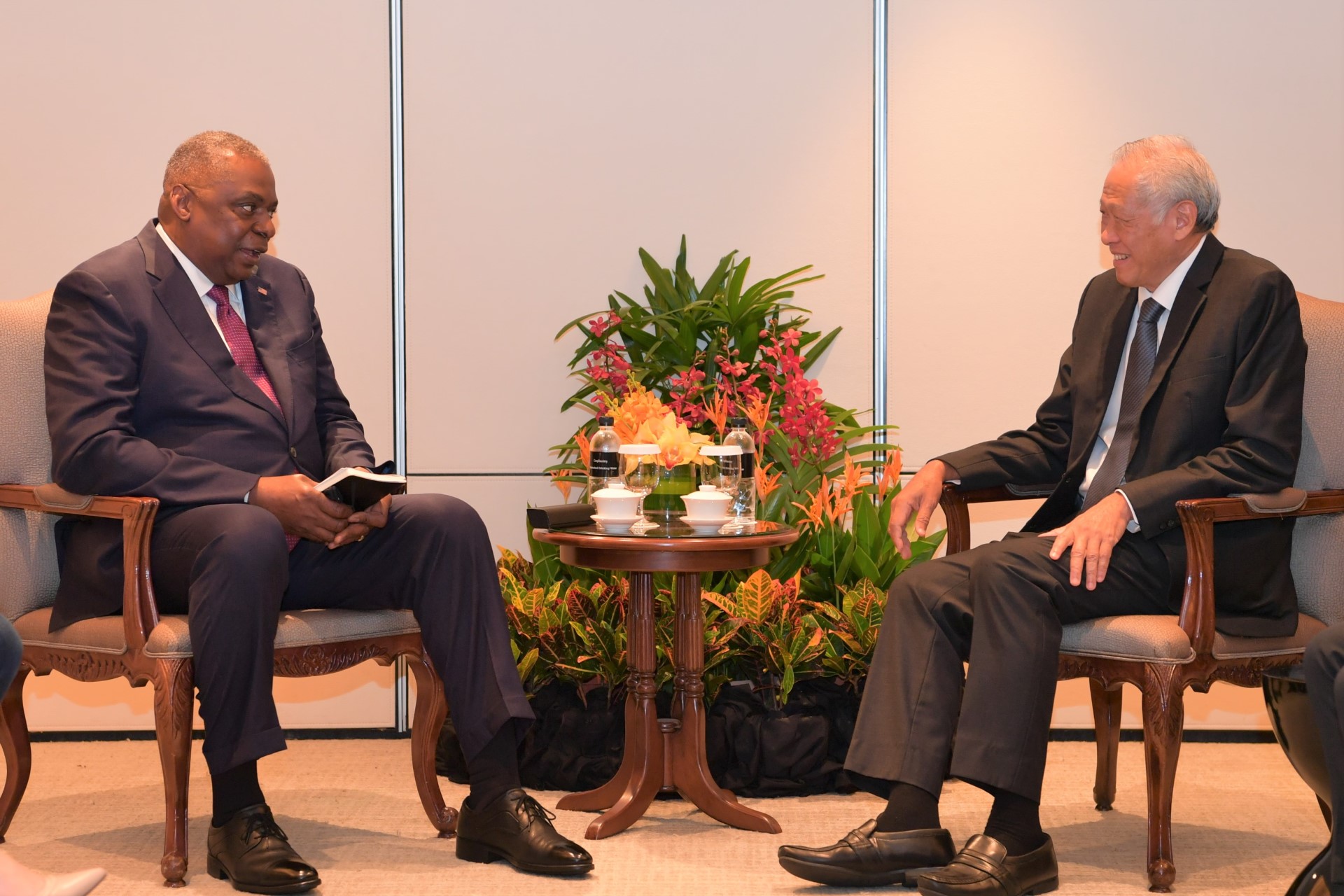
Mr Austin (left) calling on Dr Ng after breakfast.
Dr Ng expressed his appreciation for the US' strong support for the SAF's training in the US, including the Republic of Singapore Air Force's (RSAF's) acquisition and operationalisation of the F-35Bs.
Both men also discussed ways to further strengthen defence cooperation between the two nations, including in the area of cyber defence following the signing of a MOU concerning cooperation in cyberspace in August 2021.
10 Jun 11.05am
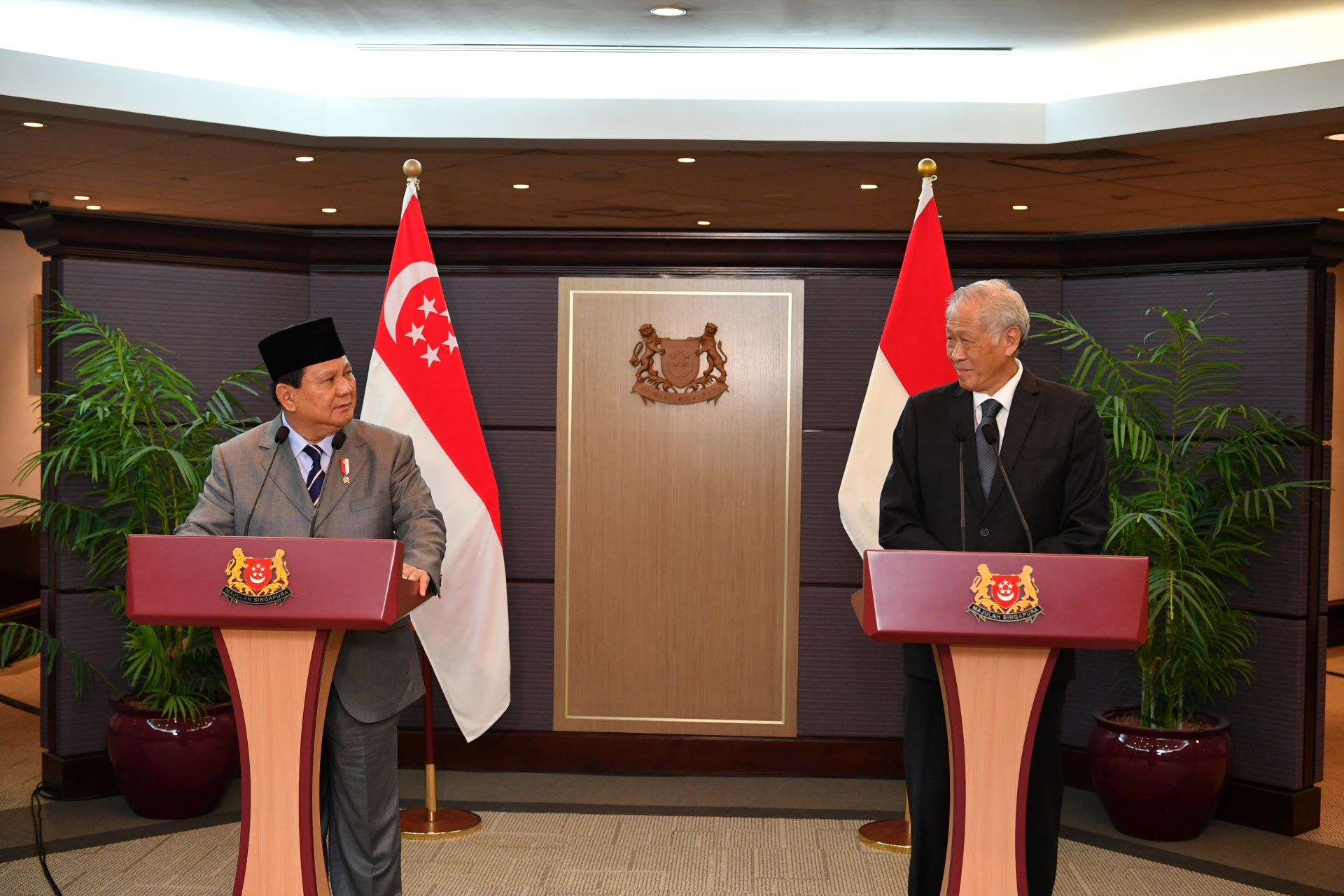
During his introductory visit to Singapore, Indonesian Defence Minister Prabowo Subianto (left) and Dr Ng reaffirmed the close and long-standing bilateral defence relationship between Singapore and Indonesia. They also exchanged views on regional security challenges and discussed ways to enhance bilateral defence cooperation between the two nations.
When asked what was discussed during their meeting in a joint doorstop interview, Mr Prabowo said: "We still have problems with maritime delineation of our maritime borders (and) piracy issues in this region. That's why this close friendship and cooperation is very vital.
"We would like to resolve all these issues in a friendly manner (as) good friends."
10 Jun, 3pm
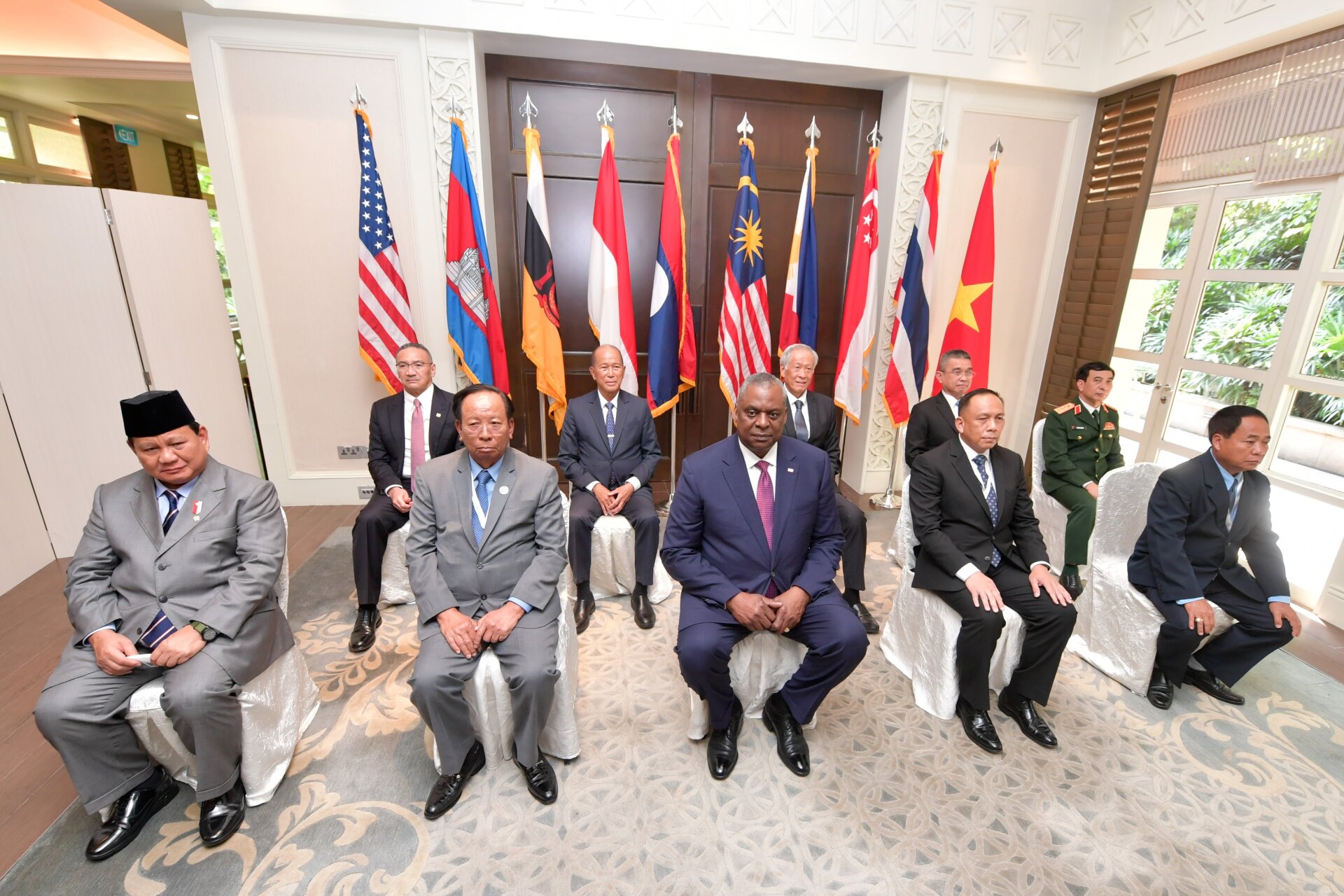
Mr Austin (front row, centre) meeting Dr Ng (second row, centre) and other Southeast Asian Defence Ministers and their representatives at an informal Southeast Asia-US Defence Ministers' meeting.
During the meeting, Mr Austin reaffirmed the US' strong commitment to the region and said that the US would continue to deepen cooperation with ASEAN, particularly in the area of maritime security as well as play a strong role in ADMM-Plus.
10 Jun, 5.45pm
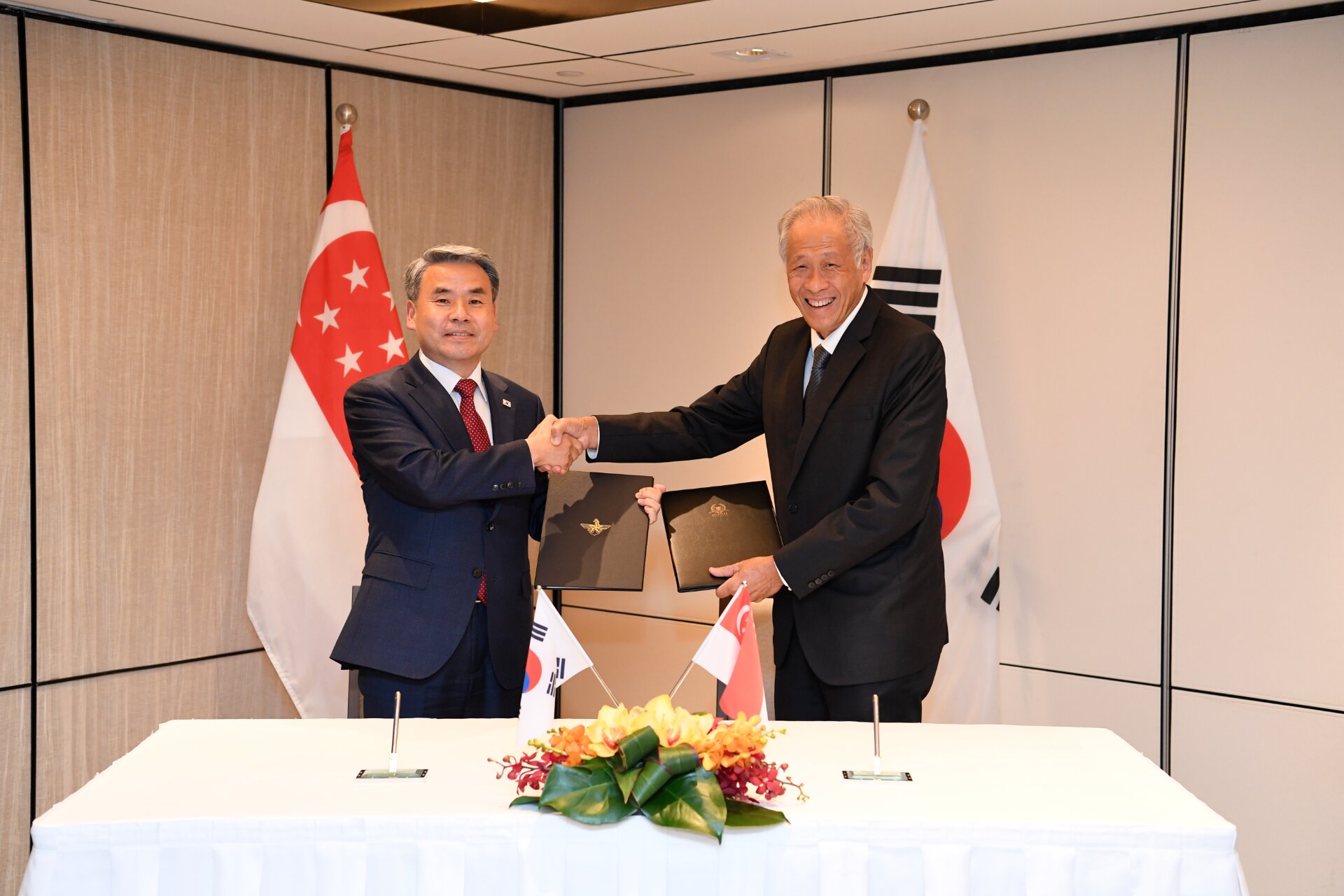
Republic of Korea Minister of National Defense Lee Jong-Sup (left) and Dr Ng (right) marking the signing of the Enhanced Memorandum on Defence Cooperation with a firm handshake.
The enhanced MOU furthers cooperation between both defence establishments to institutionalise defence dialogues and cooperation in maritime security, CBRNE (Chemical, Biological, Radiological, Nuclear and Explosives), cybersecurity, military museum development and multilateral frameworks such as the ADMM-Plus.
11 Jun, 7.45am
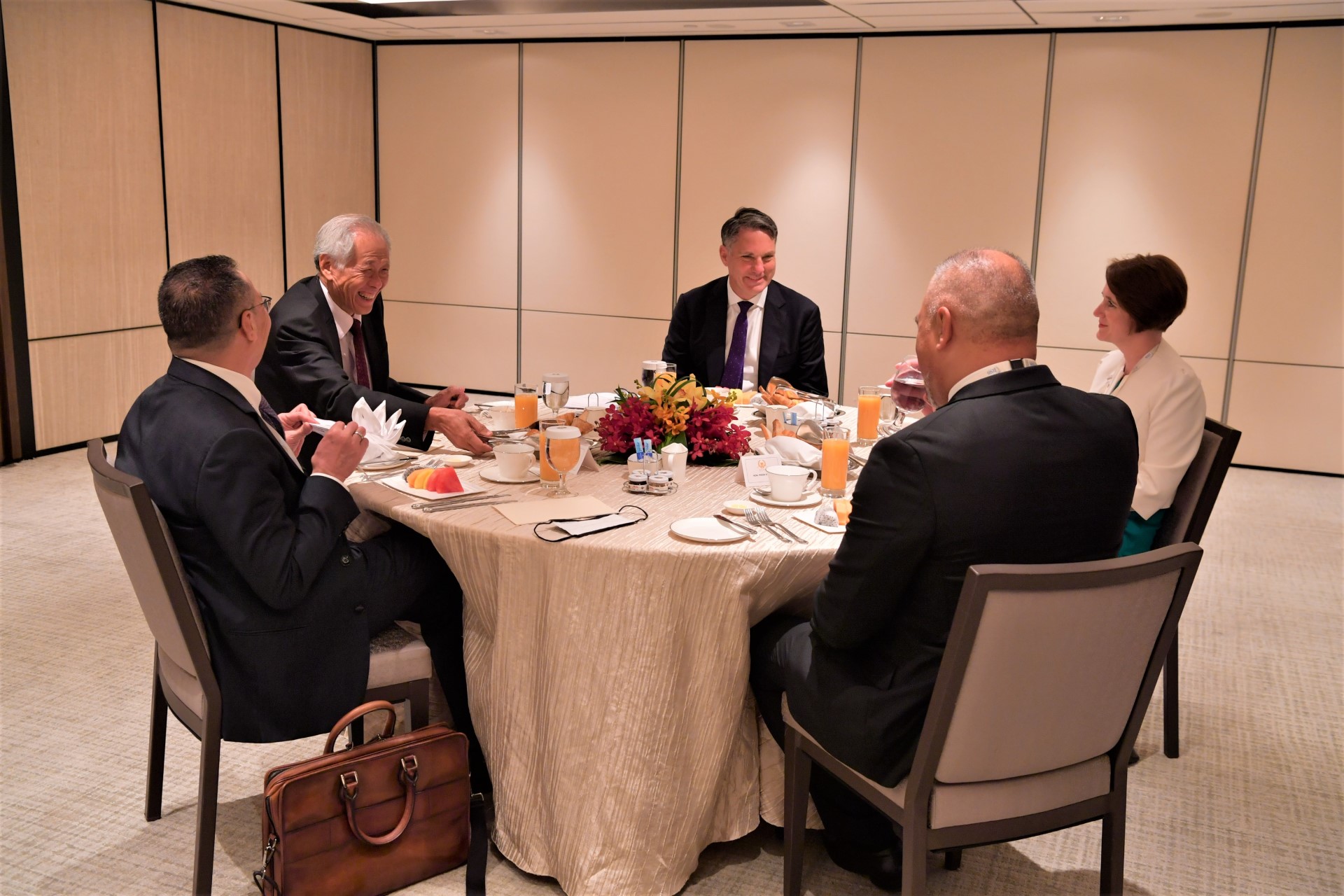
Dr Ng (second from left) hosting a breakfast for Ministers and Representatives of the Five Power Defence Arrangements (FPDA). They include Australia Deputy Prime Minister and Minister for Defence Richard Marles (third from left), Malaysia Senior Minister of Defence Dato' Seri Hishammuddin bin Tun Hussein (left), New Zealand Minister of Defence Peeni Henare (second from right), and the British High Commissioner to Singapore Kara Owen (in white jacket).
The leaders reaffirmed their nations' commitment to the FPDA, following the commemoration of the FPDA's 50th anniversary last year. They also discussed the important role of the FPDA in building confidence and promoting a rules-based international order.
Speaking on the relevance of the FPDA during a joint doorstop interview after breakfast, Mr Marles said: "We have such a good relationship in a world where there are pretty complex strategic challenges. It is a huge asset for us… because relationships such as what we've got now between old friends where there is genuine warmth is something that is really precious in the modern world."
11 Jun, 11.50am
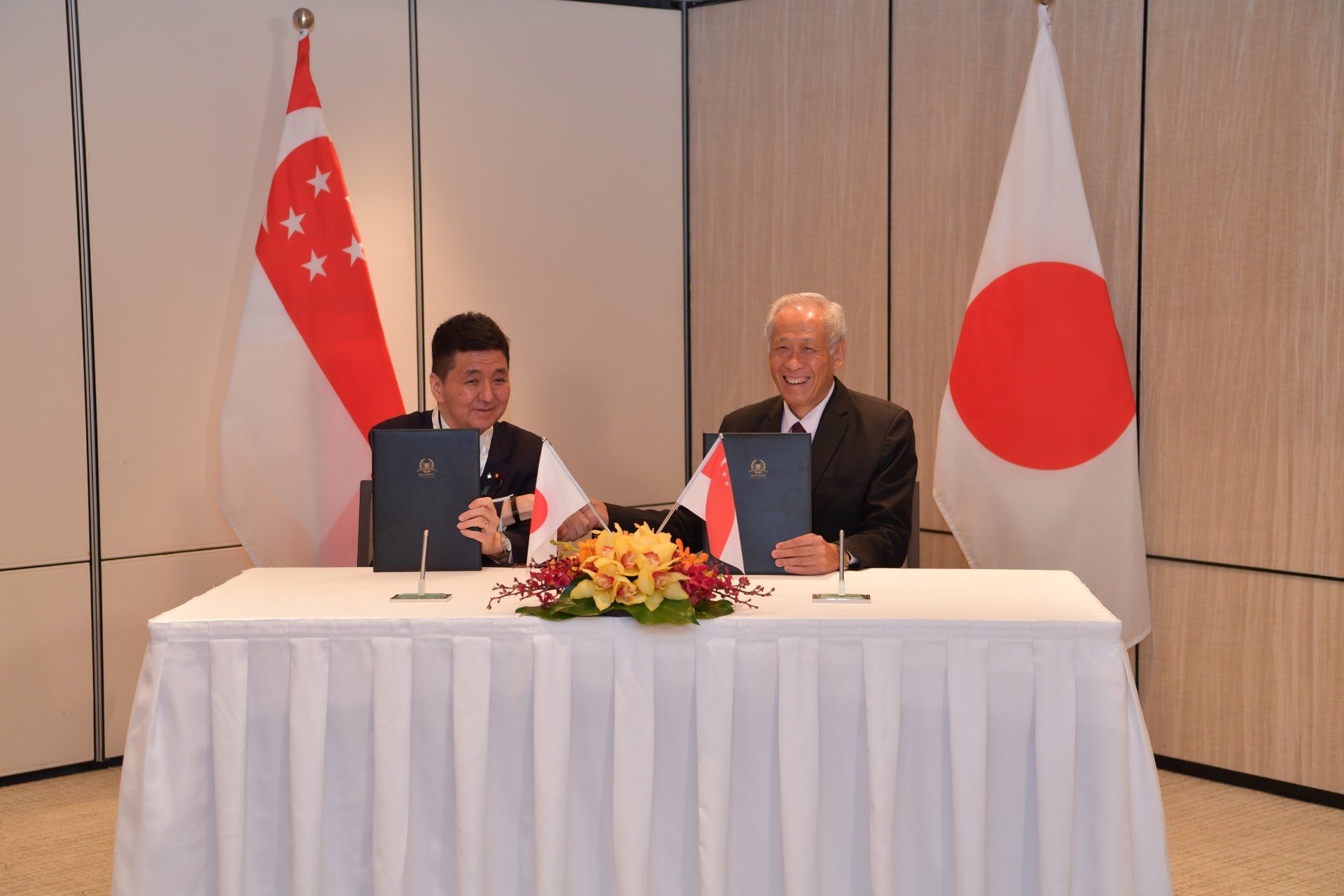
Dr Ng (right) signing the Enhanced Memorandum on Defence Exchanges with Japan Minister of Defense Kishi Nobuo (left).
The Enhanced Memorandum identifies new areas of cooperation including logistics support, exchanges on defence technology, protection against Chemical, Biological, Radiological, and Explosive threats, strategic communications and maritime security. Both countries will also advance regional cooperation in a multilateral setting such as the ADMM-Plus.
11 Jun, 5pm
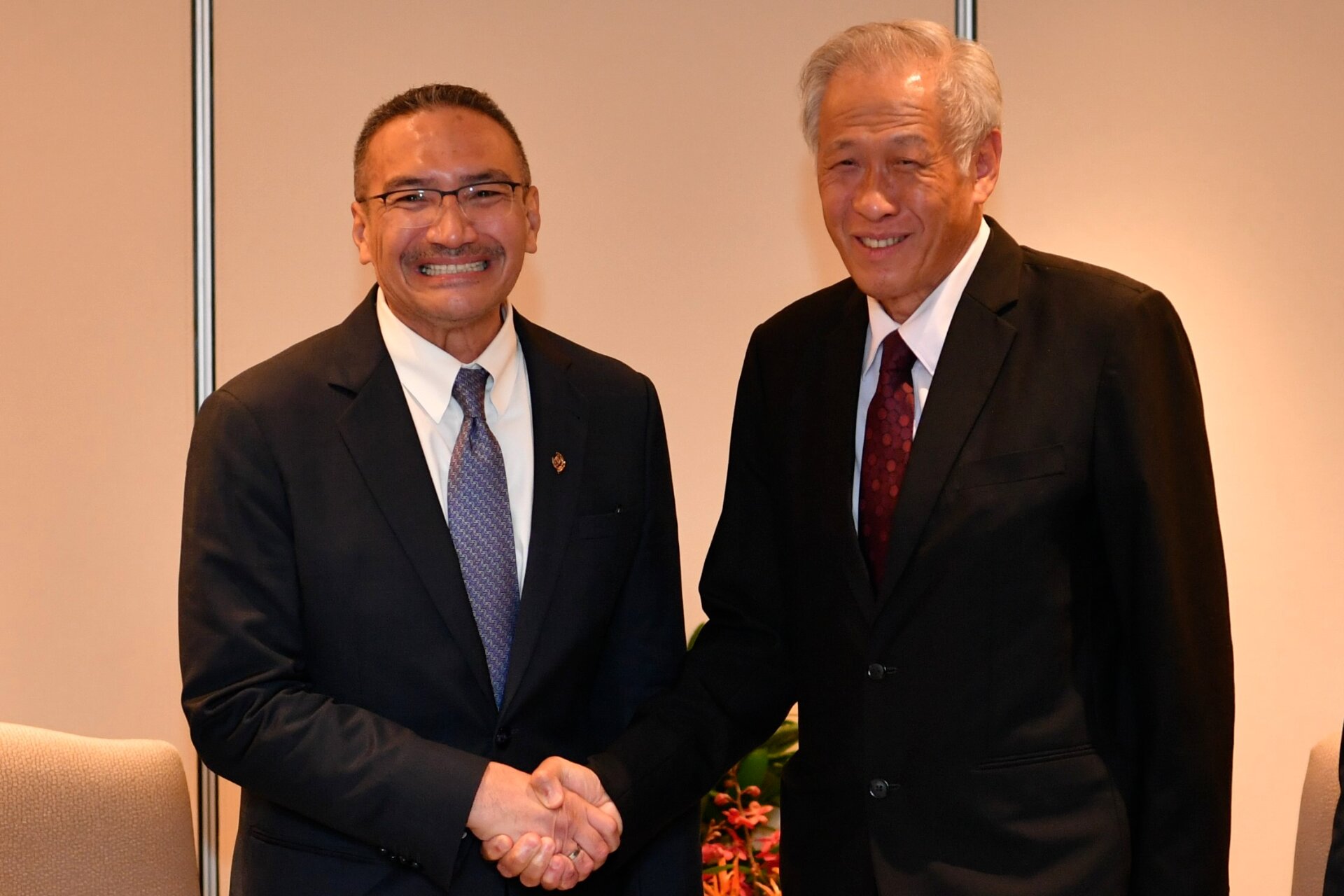
Malaysian Senior Minister for Defence Dato' Seri Hishammuddin bin Tun Hussein (left) calling on Dr Ng on the sidelines of SLD.
During the meeting, both ministers reaffirmed the long-standing bilateral relationship and cooperation between Singapore and Malaysia. They also discussed common security challenges including terrorism, cyber and maritime security, as well as ways to strengthen ties between both countries' armed forces.
ALSO READ IN DIPLOMACY
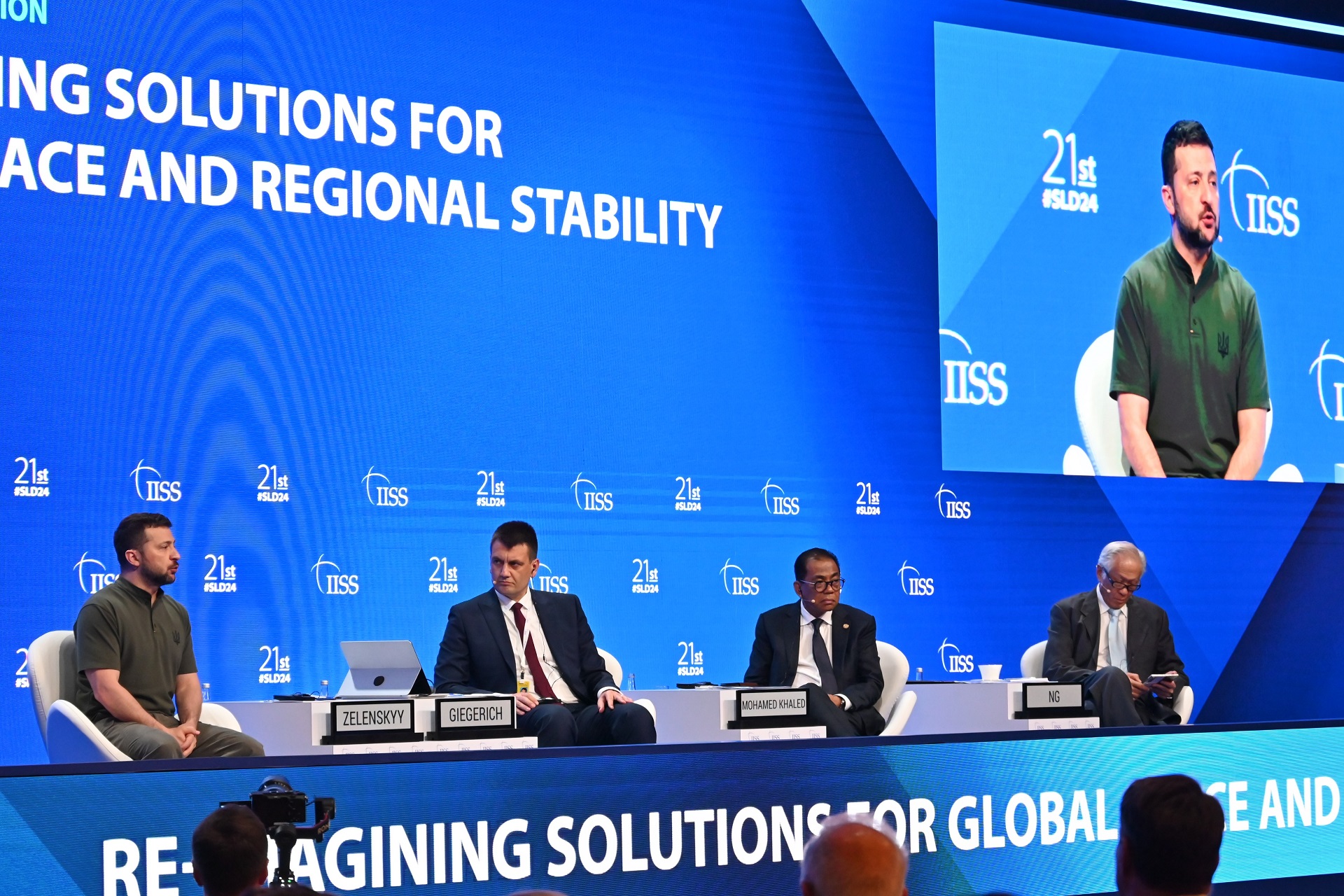
A call for peace at Shangri La Dialogue
02 Jun 2024
A repeated call for peace, especially in Asia. This was Minister for Defence Dr Ng Eng Hen's central message at the 21st Shangri La Dialogue (SLD), held from 31 May to 2 Jun.
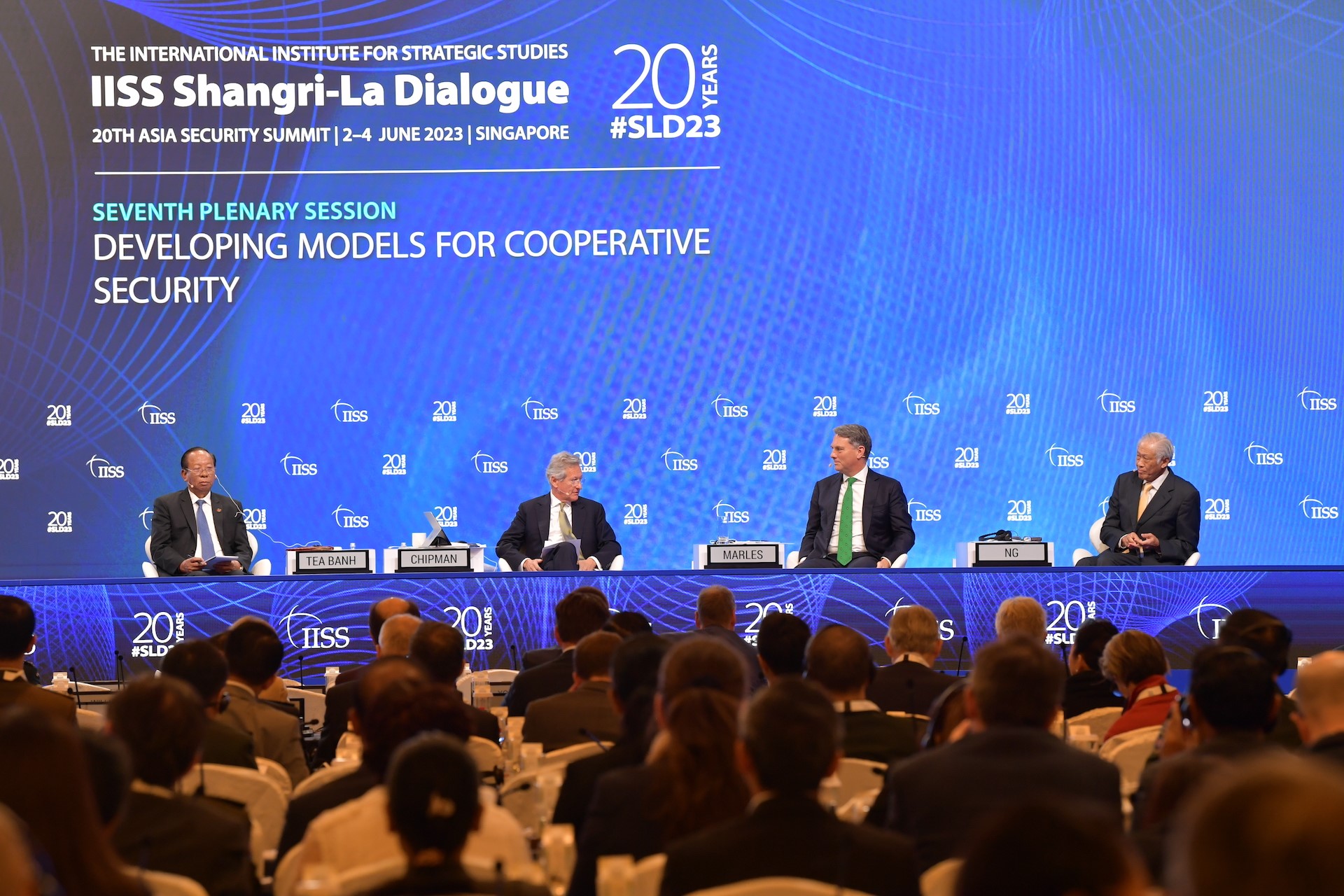
Shangri-La Dialogue sees frank discussion of security issues
04 Jun 2023
The 20th Shangri-La Dialogue, held from 2 to 4 Jun, saw ministers from around the world meet in Singapore to discuss key defence and security issues.
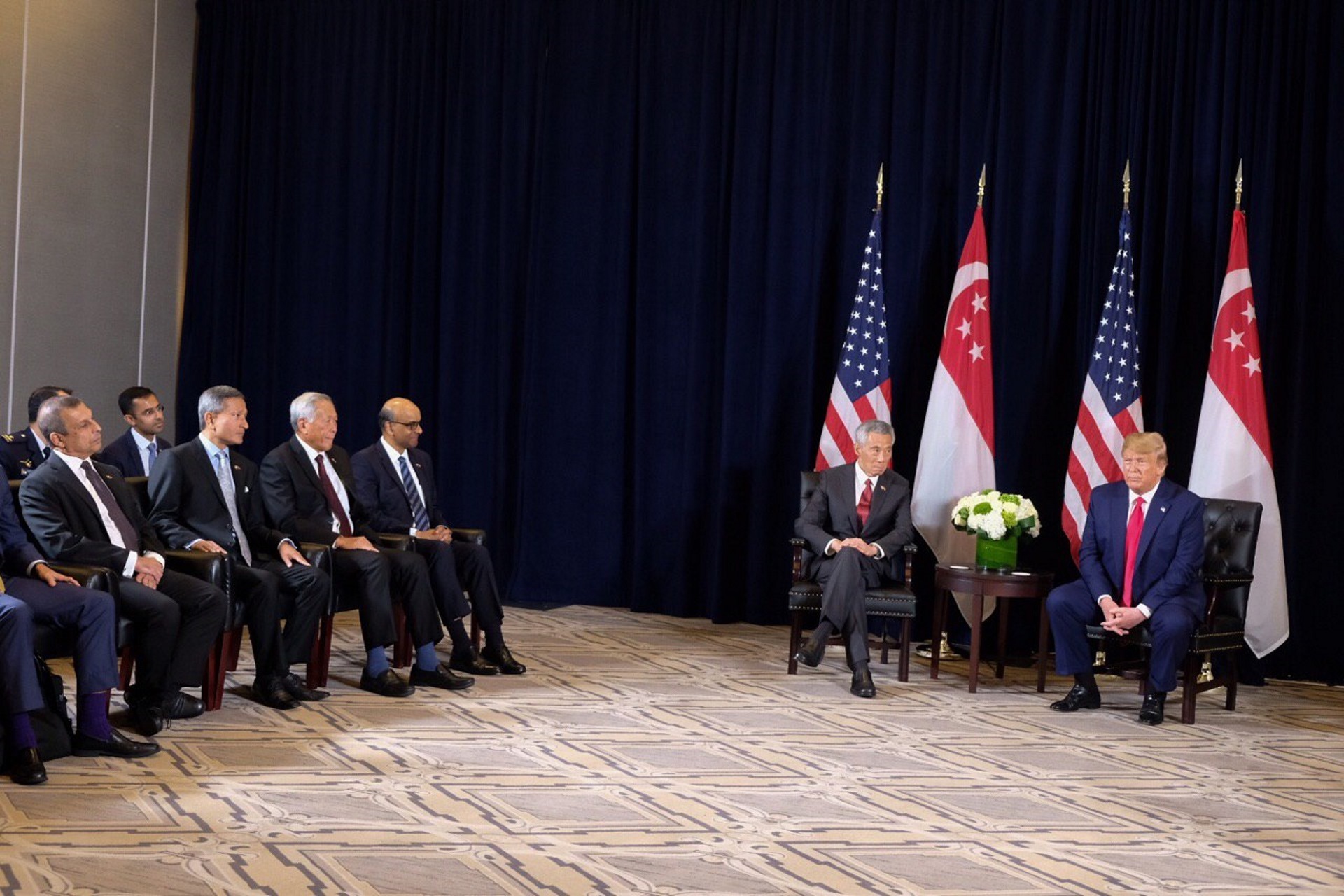
S’pore and US renew defence agreement
25 Sep 2019
Prime Minister Lee Hsien Loong and United States (US) President Donald Trump signed an agreement to renew the 1990 Memorandum of Understanding (MOU) Regarding United States' Use of Facilities in Singapore on 24 Sep.


